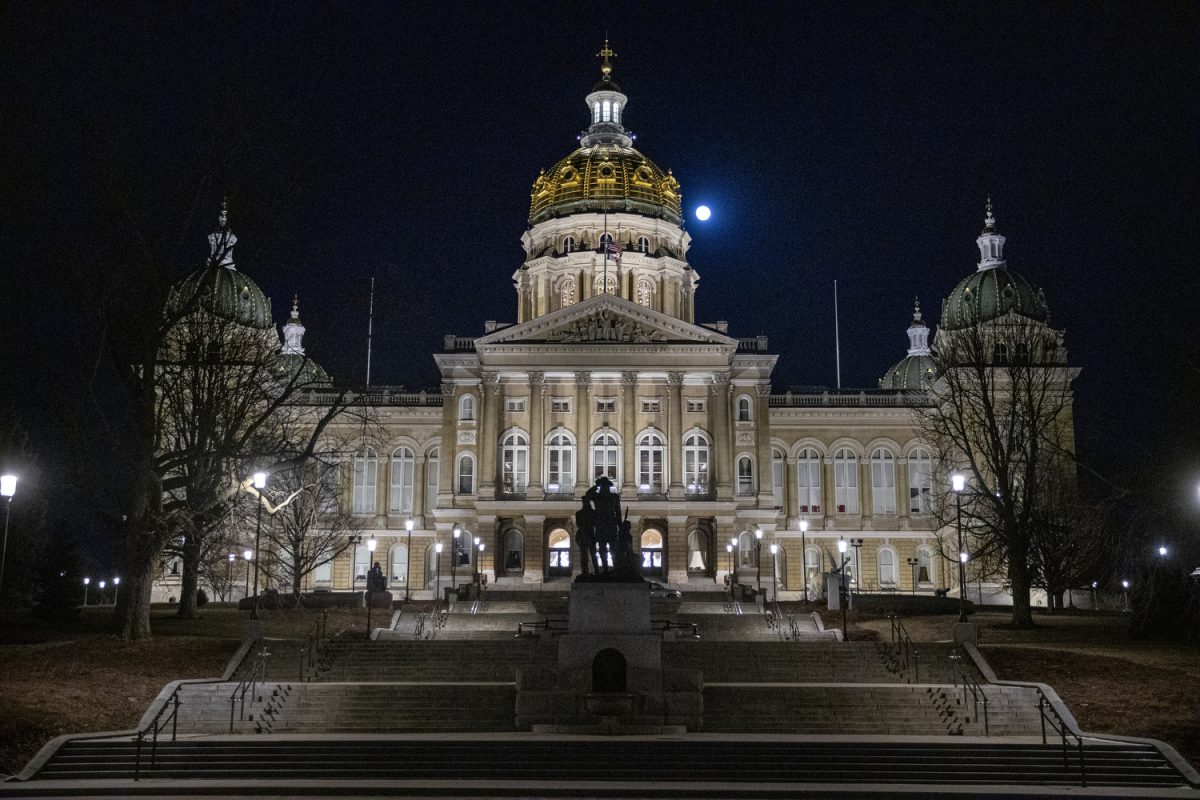Iowa House and Senate lawmakers advanced two identical bills levying the state’s most comprehensive property tax reform since the 1970s. The bill aims to provide property tax relief to Iowans, a top priority for Iowa Republicans this session.
The bills, House Study Bill 313 and Senate Study Bill 1208, would limit tax levy increases, expand property tax credits, and eliminate the antiquated “rollback” system limiting property value assessment growth.
The bills advanced with bipartisan support on Wednesday. The bill will now move to the whole House Committee on Ways and Means for consideration, but is not on the agenda for consideration at the committee’s next meeting.
Iowa Rep. Bobby Kaufmann, R-Wilton, said the bill looks to shake up the state’s current property tax system with the bill, but the legislation is still a work in progress.
“We could continue to tickle the system and just play around the edges, or we could be responsive and do something bold,” Kaufmann said. “Which is why I am doing what we’re doing, and that is a complete overhaul of the system.”
Among the biggest changes under the bills are a 2 percent property tax levy growth cap, excluding revenue from new construction, using state general fund dollars to replace $426 million in property taxes currently used to fund public schools, and phasing out the antiquated property tax rollback system limiting the amount of taxable property valuation.
The amount of “rollback” on a properties assessed valuation is determined by the Iowa Department of Management each year to limit total assessed value growth in the state by 3 percent. The system was put in place 50 years ago, and lawmakers said it confuses property taxpayers.
Kaufmann said the elimination of rollback simplifies property tax code and provides predictability for local governments.
“Right now, you cannot budget out more than one year intelligently, or even if you want to be intelligent, you can’t budget out a year consistently,” Kaufmann said.
The bill would also create a $25,000 homestead tax exemption for all residential property owners and raise the veteran property tax exemption from $4,000 to $7,000.
The changes would be phased in over the next five years.
RELATED: Iowa Republicans unveil property tax relief bills Thursday
Advocates expressed concerns over a variety of the proposals within the bill, and most lobbyists who have registered where they stand on the bill are undecided.
Scott Sanders, the Des Moines city manager, said the 2 percent cap on budget growth is not workable for cities.
“Obviously, that will not keep up with the rate of inflation for the cost that city governments need to provide services to their residents,” Sanders said.
Education lobbyists said they worry about paying a large chunk of school funding previously provided by property taxes with general fund dollars, as the state’s revenues are expected to dip due to income tax cuts.
Republican lawmakers committed to continuing conversations on the bill and assured the bill is not a finished product.
“I have committed to moving slowly on this,” Kaufmann said Wednesday. “We will then continue to solicit feedback and hopefully put forth an amendment that most of us can agree on.”
Kaufmann said he plans to bring the bill to a subcommittee in two weeks and take a floor vote a few weeks after that to garner more feedback for crafting an amendment to the bill.
Iowa Rep. Larry McBurney, D-Urbandale, said he is glad to see bold reform, though he wants to see some changes before fully committing support to the bill.
“This is a very bold change to our property tax code,” McBurney said. “I think that there are a lot of things in here that are workable. There are concerns that I have in speaking with my city leaders and speaking with my school districts that I would like to see addressed … But I do think that this is a good start, and I’m glad that we are taking it a little bit slower than what we’ve seen in the past.”
Lawmakers’ last reforms to the property tax system were in 2023, when lawmakers capped the amount of revenue growth that a local government could see from year to year and required excess funds be used to lower property taxes.



